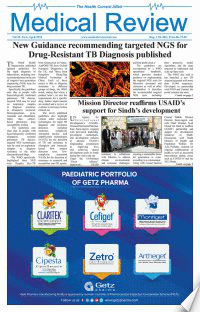A surge in demand for oxygen due to the COVID-19 pandemic has created an emergency impacting half a million people in low- and middle-income countries.
New assessments have revealed that $90m (~€74.28m) in immediate funding is needed to meet the urgent demand for oxygen treatment in up to 20 low- and middle-income countries (LMICs). COVID-19 has put huge pressure on health systems, with hospitals in many LMICs running out of oxygen, resulting in preventable deaths and families of hospitalised patients paying a premium for scarce oxygen supplies.
Unitaid and Wellcome have pledged an immediate contribution of up to $20m in total for the emergency response.
Oxygen treatment for COVID-19
A sustainable oxygen supply is vital for the treatment of COVID-19, as well as therapeutic products such as dexamethasone. To help combat the emergency the Access to COVID Tools Accelerator Therapeutics pillar (co-led by Unitaid and Wellcome), is taking on a new role in partnership with a WHO-led consortium, with the launch of a COVID-19 Oxygen Emergency Taskforce.
Dr Philippe Duneton, Executive Director of Unitaid, said: “This is a global emergency that needs a truly global response, both from international organisations and donors. Many of the countries seeing this demand struggled before the pandemic to meet their daily oxygen needs. Now it’s more vital than ever that we come together to build on the work that has already been done, with a firm commitment to helping the worst-affected countries as quickly as possible.”
The taskforce partners will work together to measure oxygen demand, and work with financing partners, as well as securing oxygen supplies and technical support for the worst-affected countries.
Scaling up through innovation
The overall funding needed over the next 12 months has been estimated by the ACT-Accelerator to be US$1.6bn, which will be regularly reviewed by the taskforce.
Dr Mike Ryan, Executive Director of the WHO Health Emergencies Programme, said: “Oxygen is life-saving, and it is imperative to move faster to scale-up holistically with patient-centered, end-to-end solutions that improve clinical outcomes.
“WHO has been working through the Biomedical Consortium to bring the technical, clinical, and procurement partners together with about US$80m of biomedical equipment procured for low and middle-income countries. The Oxygen Taskforce will help drive oxygen scale-up through further innovation, financing, and capacitation.”
The taskforce brings together key organisations that have been working to improve access to oxygen since the start of the pandemic including Unitaid, Wellcome, WHO, Unicef, the Global Fund, World Bank, the Clinton Health Access Initiative (CHAI), PATH, the Every Breath Counts coalition, and Save the Children.


